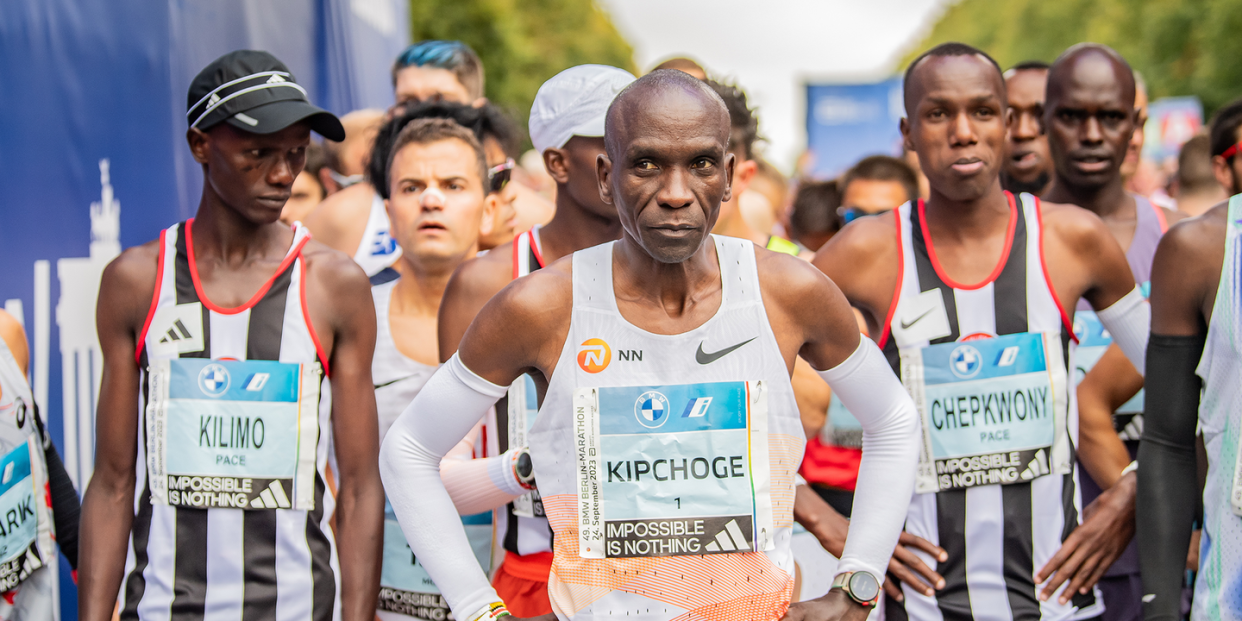What does Kipchoge eat for breakfast?

We all want to copy Eliud Kipchoge. Whether it's his 80/20 training method or two-hour midday nap routine, we love hearing about the marathon GOAT's training secrets and seeing how we can apply them to our own training.
But while things like his weekly training volume (an eye-watering 200-220km) feel less attainable, his pre-race breakfast is refreshingly simple.
After Kipchoge won the 2023 Berlin Marathon in September, sports dietitian Meghann Featherstun asked the five-time race winner what he had for breakfast that morning. His answer? Oatmeal (or porridge).
He didn't divulge anymore in that interview about what goes into his pre-race porridge, but we know from previous conversations with exercise biochemist Armand Bettonviel, who develops nutrition plans for elite athletes, including Kipchoge, that he also has a certain type of protein porridge to help with recovery after training.
It's made from whey protein and teff, an ancient grain that offers 10g of protein per cooked 180g, and he has that with fruit. You can make it yourself by mixing half a scoop of protein powder with wholegrain teff – widely available online – and cook it similarly to porridge.
So what else do we know about Kipchoge's diet? Well, Bettonviel told us that Kipchoge’s meals feature Kenyan staples such as ugali (corn-flour porridge), potatoes, rice, chapati (wheat flatbread), managu (an iron-rich leafy green), beans, whole-fat milk, eggs, chicken and beef.
He only eats meat on about half of the days in the week, so to up his protein intake, Kipchoge drinks mala, a local sour milk, which is high in protein and similar to kefir, which you can find in most dairy aisles.
Why is porridge such a good pre-race meal?
Given it's nutritional profile, there's little wonder the marathon great opts for porridge as his pre-race breakfast.
A 50g portion of oats will provide you with 30g of carbs. Make that with 200ml of cow’s milk and top with a banana, and you're getting 65g of carbohydrates. Porridge also contains soluble fibre, which supports good gut health.
Porridge can also be a great choice prior to long, slow training runs. 'Oats release energy at a sustained pace overtime, ensuring that your blood sugar levels don’t fluctuate when you’re out for longer,' says sports dietitian and RW columnist Renee McGregor. 'Porridge oats can also be enhanced by adding dried fruit, honey and even granola to hit those higher carbohydrate intakes when they’re needed the most.'
You Might Also Like

 Yahoo News
Yahoo News 